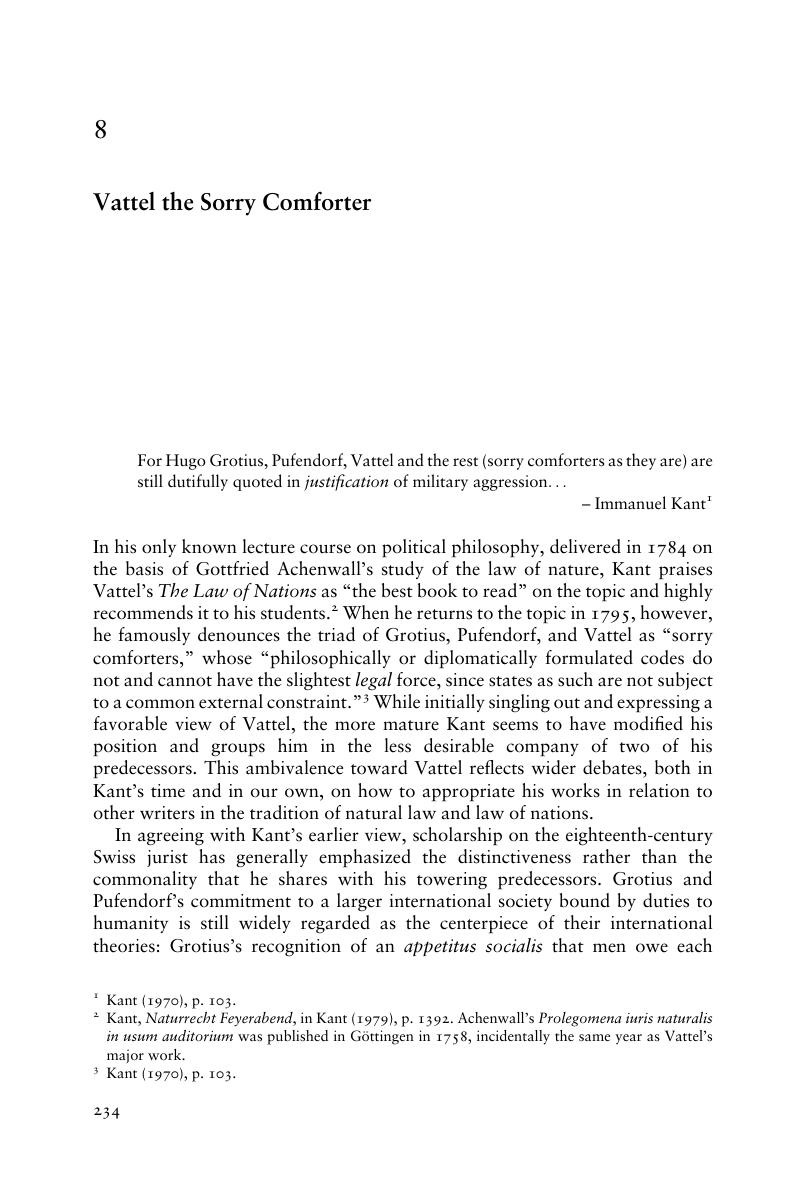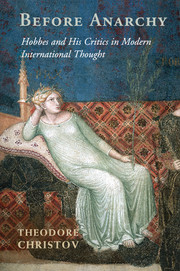Book contents
- Before Anarchy
- Before Anarchy
- Copyright page
- Dedication
- Contents
- Book part
- Part I Hobbesian Variations
- Part II Hobbesian Receptions
- 5 Pufendorf’s Anti-Hobbesian Camouflage
- 6 Pufendorf’s International Thought
- 7 Rousseau and the Quest for Peace
- 8 Vattel the Sorry Comforter
- Epilogue: Globalizing Political Thought
- Index
- References
8 - Vattel the Sorry Comforter
from Part II - Hobbesian Receptions
Published online by Cambridge University Press: 05 January 2016
- Before Anarchy
- Before Anarchy
- Copyright page
- Dedication
- Contents
- Book part
- Part I Hobbesian Variations
- Part II Hobbesian Receptions
- 5 Pufendorf’s Anti-Hobbesian Camouflage
- 6 Pufendorf’s International Thought
- 7 Rousseau and the Quest for Peace
- 8 Vattel the Sorry Comforter
- Epilogue: Globalizing Political Thought
- Index
- References
Summary

- Type
- Chapter
- Information
- Before AnarchyHobbes and his Critics in Modern International Thought, pp. 234 - 268Publisher: Cambridge University PressPrint publication year: 2016

